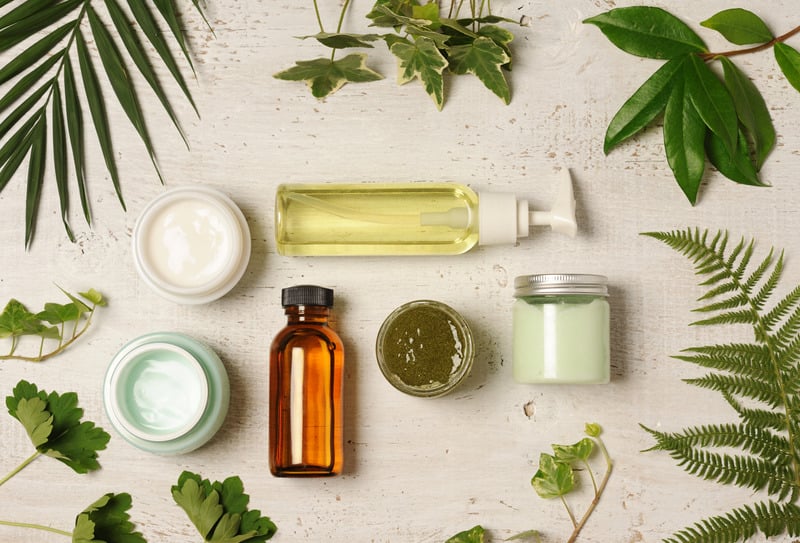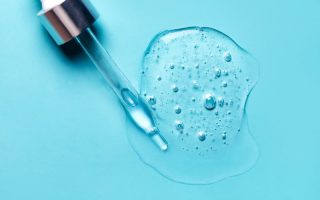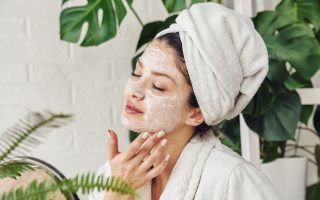Skincare can be confusing with so many ingredients to choose from. But don’t worry! This guide will help you understand some of the most common skincare ingredients from A to Z. By the end, you’ll know what they are and what they do for your skin.
A – Aloe Vera
Aloe Vera is a plant that has been used for centuries to heal and soothe the skin. It is great for reducing redness and irritation. Many people use it after spending time in the sun because it helps cool and heal sunburned skin.
B – Benzoyl Peroxide
Benzoyl Peroxide is a powerful ingredient used to treat acne. It works by killing the bacteria that cause pimples. If you have acne-prone skin, look for products with Benzoyl Peroxide to help keep your skin clear.
C – Ceramides
Ceramides are fats that are naturally found in your skin. They help keep your skin barrier strong and healthy. Using products with ceramides can help lock in moisture and protect your skin from damage. According to a study titled “The Role of Ceramides in Maintaining Skin Barrier Function and Addressing Skin Conditions: A Systematic Review,” ceramides play a crucial role in maintaining skin barrier integrity and addressing various skin conditions.
D – Dimethicone
Dimethicone is a type of silicone that makes your skin feel smooth. It is often used in moisturizers and primers to create a silky texture. If you have dry or rough skin, products with Dimethicone can help make your skin feel soft and smooth.
E – Exfoliants
Exfoliants are ingredients that help remove dead skin cells from the surface of your skin. This can make your skin look brighter and feel smoother. There are two types of exfoliants: physical and chemical. Physical exfoliants use small particles to scrub away dead skin, while chemical exfoliants use acids to dissolve them.
F – Ferulic Acid
Ferulic Acid is an antioxidant that helps protect your skin from damage caused by the sun and pollution. It is often used in combination with other antioxidants like Vitamin C and Vitamin E to boost their effectiveness.
G – Glycolic Acid
Glycolic Acid is a type of alpha hydroxy acid (AHA) that helps exfoliate your skin. It can improve the texture and tone of your skin by removing dead skin cells. If you have dull or uneven skin, products with Glycolic Acid can help brighten and smooth your complexion.
H – Hyaluronic Acid
Hyaluronic Acid is a powerful hydrator that can hold up to 1,000 times its weight in water. It helps keep your skin plump and moisturized. If you have dry or dehydrated skin, look for products with Hyaluronic Acid to help keep your skin hydrated.
I – Isopropyl Myristate
Isopropyl Myristate is an ingredient that helps products absorb better into your skin. It is often used in lotions and creams to make them feel less greasy. If you have oily skin, products with Isopropyl Myristate can help your skin feel less oily.
J – Jojoba Oil
Jojoba Oil is a natural oil that is similar to the oil your skin produces. It is great for moisturizing and balancing your skin. If you have oily or acne-prone skin, Jojoba Oil can help regulate your skin’s oil production.
K – Kojic Acid
Kojic Acid is an ingredient that helps lighten dark spots and even out your skin tone. It is often used in products that target hyperpigmentation. If you have dark spots or uneven skin tone, products with Kojic Acid can help brighten your complexion.
L – Lactic Acid
Lactic Acid is another type of alpha hydroxy acid (AHA) that helps exfoliate your skin. It is gentler than Glycolic Acid and is often used in products for sensitive skin. If you have sensitive skin, look for products with Lactic Acid to help improve your skin’s texture and tone.
M – Niacinamide
Niacinamide, also known as Vitamin B3, is a versatile ingredient that can help with a variety of skin concerns. It can improve the appearance of enlarged pores, uneven skin tone, and fine lines. If you have multiple skin concerns, products with Niacinamide can help address them all.
N – Niacinamide
Niacinamide, also known as Vitamin B3, is a versatile ingredient that can help with a variety of skin concerns. It can improve the appearance of enlarged pores, uneven skin tone, and fine lines. If you have multiple skin concerns, products with Niacinamide can help address them all.
O – Octinoxate
Octinoxate is a common ingredient in sunscreens. It helps protect your skin from the harmful effects of the sun’s UVB rays. If you spend a lot of time outdoors, look for sunscreens with Octinoxate to help protect your skin from sunburn and damage.
P – Peptides
Peptides are small proteins that help your skin produce more collagen. Collagen is what keeps your skin firm and youthful. If you have aging skin, products with Peptides can help reduce the appearance of fine lines and wrinkles.
Q – Quercetin
Quercetin is an antioxidant that helps protect your skin from damage caused by free radicals. It is often used in anti-aging products to help keep your skin looking youthful. If you want to protect your skin from aging, look for products with Quercetin.
R – Retinoids
Retinoids are a group of ingredients that are derived from Vitamin A. They are known for their ability to improve the appearance of fine lines, wrinkles, and acne. According to a study titled “A Comprehensive Review of Topical Retinoids for Skin Rejuvenation: Efficacy, Safety, and Considerations for Personalized Treatment,” retinoids are effective in different skin concerns and can be personalized based on individual needs. If you want to improve the overall appearance of your skin, products with Retinoids can help.
S – Salicylic Acid
Salicylic Acid is a type of beta hydroxy acid (BHA) that helps exfoliate your skin and unclog pores. It is often used in products for acne-prone skin. If you have blackheads or whiteheads, products with Salicylic Acid can help keep your pores clear.
T – Tea Tree Oil
Tea Tree Oil is a natural ingredient that has antibacterial properties. It is often used in products for acne-prone skin to help reduce breakouts. If you have acne, products with Tea Tree Oil can help keep your skin clear.
U – Urea
Urea is an ingredient that helps keep your skin hydrated. It is often used in products for dry or rough skin. If you have dry or flaky skin, products with Urea can help keep your skin soft and smooth.
V – Vitamin C
Vitamin C is a powerful antioxidant that helps brighten your skin and protect it from damage. It is often used in products that target dark spots and uneven skin tone. If you want to brighten your complexion, look for products with Vitamin C.
W – Witch Hazel
Witch Hazel is a natural astringent that helps tighten your skin and reduce inflammation. It is often used in toners for oily or acne-prone skin. If you have oily skin, products with Witch Hazel can help control oil and reduce shine.
X – Xylitol
Xylitol is a sugar alcohol that helps keep your skin hydrated. It is often used in moisturizers and serums to help lock in moisture. If you have dry or dehydrated skin, products with Xylitol can help keep your skin hydrated.
Y – Yeast Extract
Yeast Extract is an ingredient that helps improve the overall appearance of your skin. It is often used in anti-aging products to help reduce the appearance of fine lines and wrinkles. If you want to keep your skin looking youthful, look for products with Yeast Extract.
Z – Zinc Oxide
Zinc Oxide is a common ingredient in sunscreens. It helps protect your skin from the harmful effects of the sun’s UVA and UVB rays. If you spend a lot of time outdoors, look for sunscreens with Zinc Oxide to help protect your skin from sunburn and damage.
Conclusion
Understanding skincare ingredients can help you choose the right products for your skin. By knowing what each ingredient does, you can create a skincare routine that addresses your specific concerns. Remember, the beauty of a good skincare routine lies in its simplicity. Rather than focusing on a plethora of ingredients, prioritize a few key players that address your specific concerns, whether it’s hydration, anti-aging, or acne treatment, as Dr. Emily Carter, Skincare Advocate and Blogger, suggests.
As Dr. Sarah Lee, Board-Certified Dermatologist, says, “While the beauty industry can be overwhelming with its endless list of ingredients, understanding the basics is key to choosing products that truly benefit your skin.” So, take the time to research and select products with scientifically proven ingredients to achieve a healthy and radiant complexion.
And remember, the future of skincare lies in personalized approaches. With advancements in technology, we can now tailor specific ingredient combinations to address individual skin profiles, ensuring maximum efficacy and minimizing the risk of irritation, as Dr. Peter Jones, Founder of Innovative Skincare Company, points out.
By understanding the mechanism of action of each ingredient, you can make informed choices that align with your unique skin needs, as Dr. David Kim, Clinical Skincare Specialist, emphasizes. So, take control of your skincare routine and enjoy the benefits of healthy, glowing skin!




